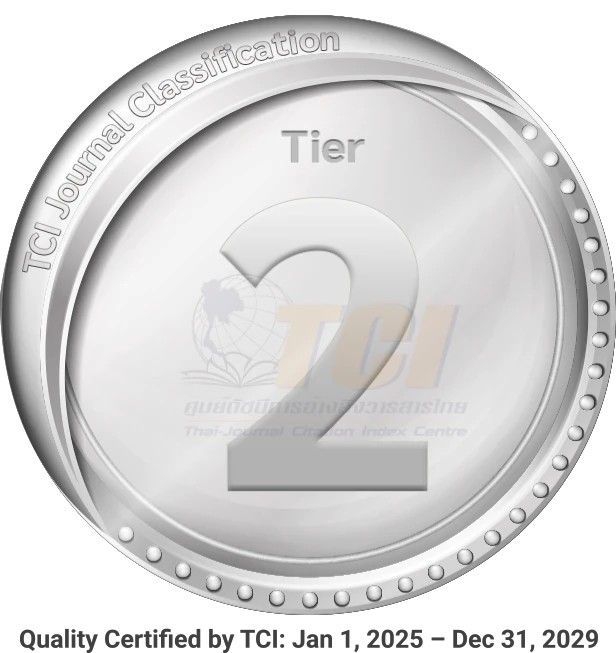The Effects of Counseling-based Teaching Method on Physics Learning Achievements of Upper Secondary School Students: An Area Focus on Momentum
Abstract
The study investigated the effects of the counselingbased teaching method on physics learning achievements of upper secondary school students. Four counseling techniques were selected to constitute a counseling-based teaching method for four constructed lesson-plan modules, i.e., (1) writing down a self-note, (2) questioning and active listening, (3) summarizing, and (4) group counseling. These selected techniques were meant to provide support in learning the topic of momentum. The subjects were thirty upper secondary school students participating in the study on a voluntary basis. There were three types of research instruments: (1) the platform and exit tests assessing physics learning achievements before and after learning each module, (2) four lesson-plan modules, each containing three counselingbased lesson plans and (3) twelve summative tests assessing physics learning achievements after using each lesson plan. Data analysis was in two parts: quantitative data in arithmetic mean, standard deviation, and dependent sample t-test; qualitative data by content analysis with two criteria: (1) varied understanding of physics concepts shown by the students’ learning activities, and (2) complete understanding of physics concepts shown by the students’ completed tasks. The findings of the study revealed the effects of the counseling-based teaching method on the subjects’ physics learning achievements in three folds: (1) there was statistically significant difference of physics learning achievement scores of the subjects before and after using the counselingbased lesson plans at the .05 level; (2) all subjects increased their physics learning achievements at the level of 50% when guided with the techniques of writing down a self-note, summarizing and group counseling; 94% were noted as obtaining scores higher than the level of 50% when guided with the technique of questioning and active listening; (3) the subjects varied in degree of understanding the learned physics concepts, and were able to reach complete understanding with one to three attempts of repeated learning activities in four modules. The obtained findings point to positive pedagogical implications of four selected counseling-based techniques for upper secondary school students in learning physics.



